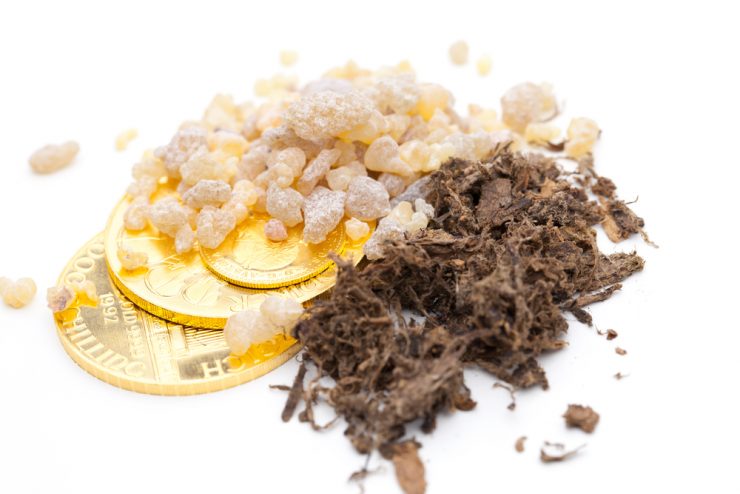If you are scratching your head trying to think of some interesting and unique Christmas presents for your nearest and dearest, look no further than gold, frankincense and myrrh, says medical herbalist Gabriella Clarke.
Gold, frankincense and myrrh make traditional and original gifts, which offer an amazing plethora of health benefits. What could be better than giving something that can improve a loved one’s health and wellbeing?
Let’s look at some of the benefits of these three amazing gifts.
GOLD
Associated with wealth, why not treat a friend or loved one to a golden herb that has a wealth of healthy benefits?
Golden root (rhodiola rosea) is one of the best adaptogenic herbs. It helps us cope with stress by increasing both mental and physical performance as well as helping combat fatigue and improving memory and concentration. What’s more, it has a stimulating effect on the immune system helping us to ward off winter viruses.
The benefits of golden root also extend to the cardiovascular system where it may help protect us from heart disease by reducing blood cholesterol levels and regulating blood pressure. It also has a normalising effect on the thyroid gland and can even help us to lose weight by encouraging the body to burn off fat reserves as a source of energy.
FRANKINCENSE (boswellia serata)
The resin from this ancient tree has long been valued as a highly-prized incense and has been used in cultural and religious ceremonies for millions of years. What is less well appreciated are its wonderful healing properties.
Frankincense has very potent anti-inflammatory actions and is indicated for use in conditions such as osteoarthritis, rheumatoid arthritis, asthma and inflammatory bowel disease. It has also been shown to be an effective pain killer in arthritic conditions as well as helping to relax the bronchial pathways, helping to alleviate the symptoms of asthma.
Its action on the bowel may be beneficial for conditions such as ulcerative colitis, Crohns disease and IBS. When it comes to chronic inflammatory diseases preliminary research suggests that frankincense may also prove to be an invaluable alternative to commonly prescribed drugs such as ibuprofen and aspirin that can have adverse side effects.
Frankincense is generally well tolerated but may irritate the gut in some people so it is best taken on a full stomach. It must never be used in pregnancy. Frankincense combines well with other anti-inflammatory herbs such as ginger and turmeric.
MYRRH (Commiphora molmol)
Just like frankincense, myrrh is a resin and also a popular ingredient in incense. In ancient Egypt it was used as a key ingredient in the embalming process. In herbal medicine it is commonly used as a mouthwash to treat sore throats, mouth ulcers and infections of the teeth and gums. Its antibacterial action helps to kill infections while also providing a pain-relieving action.
Myrrh may also help to treat respiratory problems such as asthma and bronchial infections resulting from cold and flu viruses. Externally it can be applied to boils, sores, abrasions, varicose veins and haemmorhoids where it helps to reduce inflammation and pain and fight infection.
Myrrh is usually available as an essential oil, which should not be used internally. Tincture of myrrh is the form used for medicinal purposes and can be dispensed by a qualified medical herbalist. Some over-the-counter mouthwashes may use myrrh as a key ingredient. Myrrh must not be used in pregnancy or by anyone taking warfarin or drugs for diabetes.























